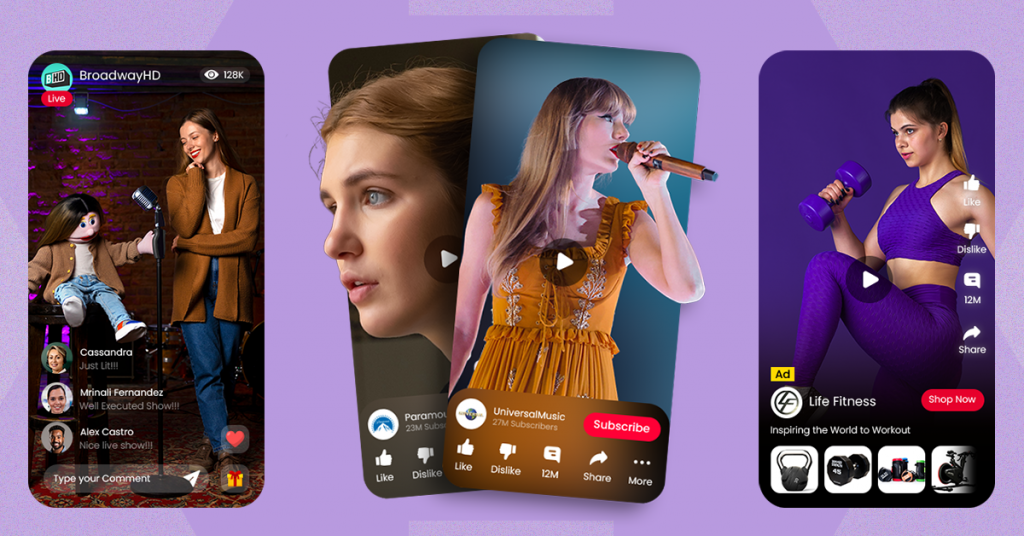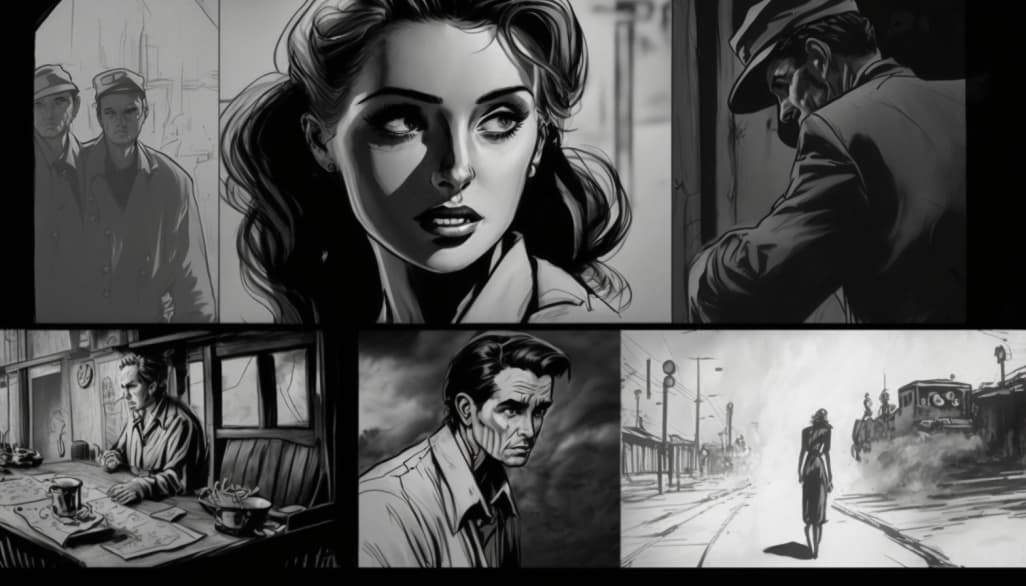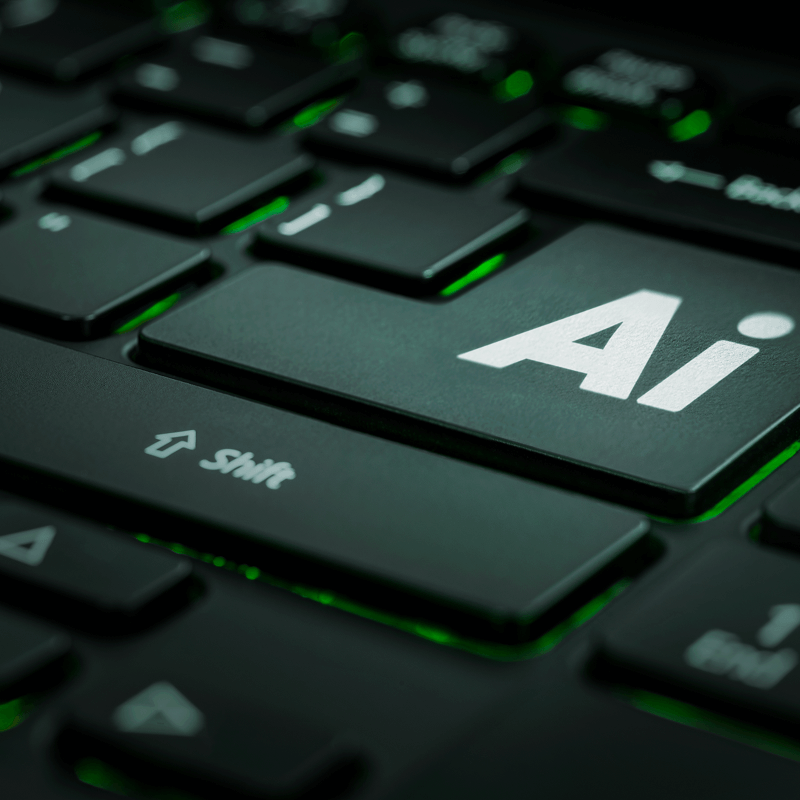The Future of Movies and Series: How AI and Micro-Dramas Are Redefining Global Entertainment
China’s $7 billion micro-drama boom signals a new era in storytelling — where AI video tools like Sora and Runway redefine how films and series are created.
.png)
Integrate your CRM with other tools
Lorem ipsum dolor sit amet, consectetur adipiscing elit lobortis arcu enim urna adipiscing praesent velit viverra sit semper lorem eu cursus vel hendrerit elementum morbi curabitur etiam nibh justo, lorem aliquet donec sed sit mi dignissim at ante massa mattis.
- Neque sodales ut etiam sit amet nisl purus non tellus orci ac auctor
- Adipiscing elit ut aliquam purus sit amet viverra suspendisse potenti
- Mauris commodo quis imperdiet massa tincidunt nunc pulvinar
- Adipiscing elit ut aliquam purus sit amet viverra suspendisse potenti
How to connect your integrations to your CRM platform?
Vitae congue eu consequat ac felis placerat vestibulum lectus mauris ultrices cursus sit amet dictum sit amet justo donec enim diam porttitor lacus luctus accumsan tortor posuere praesent tristique magna sit amet purus gravida quis blandit turpis.

Techbit is the next-gen CRM platform designed for modern sales teams
At risus viverra adipiscing at in tellus integer feugiat nisl pretium fusce id velit ut tortor sagittis orci a scelerisque purus semper eget at lectus urna duis convallis. porta nibh venenatis cras sed felis eget neque laoreet suspendisse interdum consectetur libero id faucibus nisl donec pretium vulputate sapien nec sagittis aliquam nunc lobortis mattis aliquam faucibus purus in.
- Neque sodales ut etiam sit amet nisl purus non tellus orci ac auctor
- Adipiscing elit ut aliquam purus sit amet viverra suspendisse potenti venenatis
- Mauris commodo quis imperdiet massa at in tincidunt nunc pulvinar
- Adipiscing elit ut aliquam purus sit amet viverra suspendisse potenti consectetur
Why using the right CRM can make your team close more sales?
Nisi quis eleifend quam adipiscing vitae aliquet bibendum enim facilisis gravida neque. Velit euismod in pellentesque massa placerat volutpat lacus laoreet non curabitur gravida odio aenean sed adipiscing diam donec adipiscing tristique risus. amet est placerat.
“Nisi quis eleifend quam adipiscing vitae aliquet bibendum enim facilisis gravida neque velit euismod in pellentesque massa placerat.”
What other features would you like to see in our product?
Eget lorem dolor sed viverra ipsum nunc aliquet bibendum felis donec et odio pellentesque diam volutpat commodo sed egestas aliquam sem fringilla ut morbi tincidunt augue interdum velit euismod eu tincidunt tortor aliquam nulla facilisi aenean sed adipiscing diam donec adipiscing ut lectus arcu bibendum at varius vel pharetra nibh venenatis cras sed felis eget.
The $7B Revolution: How AI and 90-Second Micro-Dramas Are Creating the Future of Entertainment
We are in the middle of a massive, $7 billion entertainment revolution that most people haven't even noticed. In 2024, a new format of 90-second, vertical-video "micro-dramas" officially made more money in China than the country's entire film box office. This isn't just a niche trend; it's a new blueprint for storytelling.
Now, combine this addictive format with the explosive power of AI video generators like Sora and Runway. The result is a future where "studios" fit on a laptop, production takes minutes, and entertainment is personalized down to the second. This is the new age of algorithmic storytelling.
What is a Micro-Drama? The Duanju Phenomenon Explained
If you’ve seen ads on social media for apps like ReelShort, DramaBox, or GoodShort, you’ve seen the wave arriving. These "micro-dramas," or duanju, are challenging Netflix and TikTok for our attention.
Here’s what defines them:
- Format: 90-second to 2-minute episodes.
- Orientation: Shot vertically for smartphones.
- Plot: Hyper-addictive soap opera plots. Think "Cinderella," "CEO revenge," and "mistaken identity" storylines.
- Pacing: Insanely fast, with a dramatic cliffhanger or plot twist every 60 seconds.
- Business Model: Often free for the first 10-20 episodes, then users pay-as-you-go (e.g., 10 cents per episode) to unlock the rest.
This model is wildly effective. ReelShort, owned by a Chinese parent company, raked in over $100 million in revenue in 2023, proving the hunger for snackable, high-drama content is a global phenomenon.

The New Wave: AI Filmmaking Tools Go Mainstream
Running parallel to this content revolution is a technology revolution. Artificial intelligence is no longer just for writing text; it's generating entire cinematic worlds.
The new "AI studios" include:
- OpenAI's Sora: A "world simulator" that can create stunningly realistic, minute-long video clips from a simple text prompt.
- Runway Gen-3 Alpha: Focused on "cinematic control," this tool allows creators to generate photorealistic human characters with consistent expressions and emotions.
- Pika Labs 1.0: A powerful tool that specializes in transforming existing clips, restyling videos, and creating content perfect for the vertical, short-form format.
- Synthesia & LLaMA-V: Platforms that create hyper-realistic AI avatars and can dub dialogue into dozens of languages, eliminating the need for traditional actors or dubbing studios for certain content.
The Perfect Storm: When AI Video Meets the Micro-Drama
This is where the two trends collide. The micro-drama format doesn't just benefit from AI; it feels like it was designed for it.
Compressing Production, Not Just Storylines
Duanju compresses a 20-episode TV season into 30 minutes of total runtime. AI filmmaking compresses a month-long production schedule into an afternoon.
The leap is natural. Where micro-dramas removed all the "filler" from storytelling, AI removes the friction from production. You no longer need cameras, crews, or locations. You just need an idea.

Welcome to the "Infinite Studio"
Imagine a writer typing a prompt:
"Create a 90-second episode. A woman in a cheap dress is thrown out of a mansion by a rich CEO. It's raining. She looks at the camera and vows revenge. Cliffhanger."
Minutes later, the episode is generated, complete with lighting, camera motion, AI actors, and sound design. This is the "infinite studio." Instead of production budgets, we have compute tokens. Instead of directors, we have prompters and AI-assisted editors.
.png)
The Psychology of the Swipe: Why We Can't Stop Watching
This new entertainment model is built for the attention economy. It’s not about art; it's about emotional payoff.
Seema Shah, VP of research at Sensor Tower, explained the appeal: “You’re tapping into the behavior of instant gratification.” Every second is engineered to deliver a dopamine hit, compelling you to watch just one more.
AI is the perfect engine for this. Algorithms trained on billions of data points can predict exactly what facial expression or camera angle will make you stay. Storytelling becomes a form of data-driven emotional engineering.
A Global Power Shift: Hollywood's New Competitors
For 100 years, Hollywood was the undisputed center of storytelling. That hierarchy is now being challenged from two sides: new formats from the East and new technology from Silicon Valley.
Hollywood's Awakening
Major studios are taking notice. In a move that shocked the industry, Tyler Perry announced he was halting an $800 million studio expansion after seeing the capabilities of OpenAI's Sora. He realized that the technology would soon make building massive physical sets obsolete for many productions.
Studios are now racing to integrate AI for previsualization, special effects, and synthetic actors.
The Rise of the "One-Person Studio"
The most exciting part is the democratization of creativity. An independent creator can now run a full-scale production "studio" from their laptop.
Using ChatGPT for scripts, Runway for visuals, and ElevenLabs for voiceovers, a single person can create an entire micro-series and build a "micro-series empire." The line between a TikTok influencer and a film producer is blurring to nothing.
The Unseen Frontier: AI Storytelling Ethics and Challenges
This future is not without serious risks. The power of "computed entertainment" brings massive ethical questions:
- Jobs & Livelihood: What happens to actors, camera crews, and writers when AI can do their jobs for a fraction of the cost?
- Identity & Deepfakes: Synthetic actors raise huge questions about likeness rights and consent. How do we know if the actor on screen is real or an AI model trained on their data?
- Bias: AI scripts risk reinforcing the hidden biases found in their training data, potentially leading to a wave of formulaic, unoriginal, and non-inclusive content.
As Avengers director Joe Russo said, “The real question is not can AI tell stories, but should it?”
The Future of Your Screen: Interactive and Personalized Content
The final evolution is the audience. You will no longer be a passive consumer; you will be a co-author.
Imagine a thriller on your phone that uses your camera to detect your facial expressions. If you look bored, it might speed up the pacing. If you look scared, it might change the ending.
This is personalized, adaptive storytelling. The show becomes a conversation, a dynamic experience that reflects your own emotions back at you.
The Age of Algorithmic Storytelling Is Here
We are entering an era where entertainment is not just created but computed. The fusion of addictive micro-dramas and powerful AI is redefining what a "movie" even means.
But amid the algorithms and compute tokens, the heart of storytelling remains the same. We crave emotion, connection, and meaning. The medium is evolving a dynamic experience that reflects your own emotions back at you.
The New Economics: From Blockbusters to Micro-Transactions
This shift doesn't just change the art; it shatters the 20th-century business model. Hollywood was built on scarcity: high-cost production, limited distribution (theaters, TV networks), and massive, one-size-fits-all "blockbuster" bets.
The new model is built on digital abundance:
- From Subscriptions to "Pay-Per-Thrill": Why pay $20 a month for a Netflix library you rarely browse? The duanju model proves audiences are more than willing to pay small amounts (e.g., 10-25 cents) for a guaranteed emotional hit. It’s the arcade model, reborn for streaming.
- The "Long Tail" on Overdrive: AI-generated content is so cheap to produce that "studios" can profitably target hyper-niche audiences. Imagine a micro-drama series just for 19th-century history buffs, or one specifically for fans of a particular sports team. The mass market is dissolving into millions of profitable micro-markets.
- IP Generation at Scale: A single creator can now generate 50 different story concepts, turn them into 50 different three-episode pilots using AI, and see which one goes viral. The one that wins gets expanded; the other 49 are forgotten. This is market research and content creation rolled into one, reducing financial risk to near zero.
The Age of Algorithmic Storytelling Is Here
We are entering an era where entertainment is not just created but computed. The fusion of addictive micro-dramas and powerful AI is redefining what a "movie," a "studio," and even a "creator" mean.
But amid the algorithms and compute tokens, the heart of storytelling remains the same. We crave emotion, connection, and meaning. The medium is evolving, but its purpose is not.
The $7 billion revolution is just the opening act. The real show begins now, as AI provides the tools for infinite, personalized, and democratized creation. The challenge for this new generation of storytellers is no longer "How do I make it?" but "What is worth making?"
The tools have become algorithmic, but the answer, hopefully, will remain profoundly human.


.png)





